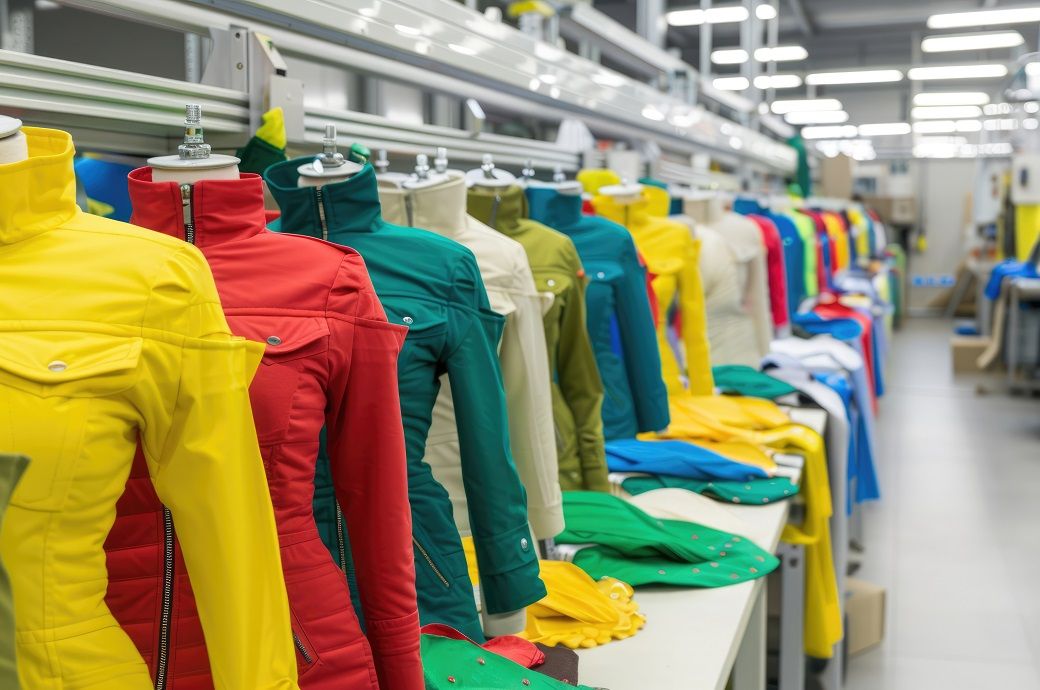
Siddharth Dungarwal, founder of textile startup Snitch, commented, “The budget 2024 is anticipated to be optimistic for India's retail apparel and fashion sector. The industry is hopeful to get policies that encourage innovation and sustainable practices. We are keeping an eye on how the government is going to further promote its Make in India Initiatives while addressing opportunities and barriers for manufacturers looking to enter international markets.” He noted that there is a constant demand from the industry to simplify export procedures and provide export-oriented incentives. The industry also hopes for tax breaks or subsidies in the fiscal policy.
“In addition, budgetary resources for workshops, R&D, training programs, and other educational collaborations should be allocated to address skill development initiatives in the apparel sector. We believe that tax incentives should be given to businesses that spend money on R&D and Skill Training. Simplifying regulatory procedures, creating technology infrastructure, skill promotion and other measures that can increase ease of business, especially for Startups in India could spur more innovation, growth, and sustainability in the retail apparel and fashion industry,” Dungarwal added.
Ayush Tainwala, CEO, Bagzone Lifestyles Pvt Ltd told Fibre2Fashion “As we anticipate the upcoming annual budget announcement, our focus is on areas essential for sustainable growth in our industry. The policy regime should promote sustainable development and environmental conservation policies to ensure that incentives are placed on the firms that support green products, technologies as well as materials. Moreover, streamlined trade policies are crucial to fostering a competitive edge in the global market, requiring simplified export procedures and reduced tariffs on key imports.”
“Specifically, we urge increased budgetary allocations towards Research and Development (R&D) in fashion technology, emphasizing innovations that reduce environmental impact. Additionally, support for small and medium enterprises (SMEs) within the fashion sector is essential, along with targeted training initiatives to enhance skill development in sustainable practices,” he commented.
Tainwala added that a proactive budget that prioritises these initiatives will not only ensure immediate growth but also establish an adaptable foundation for long-term success. The budget must serve as a blueprint for enhancing the industry's sustainability, innovation, and global competitiveness in the years ahead.
Tushar Sethi, co-founder, Jisora told F2F, “Our brand Jisora, a premium clothing brand with expertise in cotton clothing is expecting several important things from the upcoming Budget 2024-25. Simplifying procedures and lowering export duties would ease the process of expanding into global markets. Providing financial assistance or tax incentives for sustainable practices would allow for increased investment in environmentally friendly materials without raising prices for customers.”
It is essential to improve workforce skills and productivity in the textile industry by implementing structured training programmes and utilising new technologies and AI tools. Enhanced availability of credit with favourable conditions is crucial for expanding operations and upgrading machinery in SMEs. Furthermore, implementing tax relief initiatives for small and medium-sized enterprises (SMEs) can aid in controlling operational expenses and fostering innovation, he further said.
“Investing in infrastructure could improve supply chain efficiency, while backing the local cotton industry would guarantee a consistent flow of top-notch raw materials. These actions would together help promote growth and sustainability in the cotton garment industry,” Sethi added.
Ankit Bhuwalka, co-founder & business head, Scarlet Sage said, "As entrepreneurs, we eagerly await Budget 2024, hoping it will further boost India’s industrial growth. Through this fiscal budget, we hope the government will significantly aid the Indian textile and apparel industry by facilitating increased exports. Since 2018, the export volume of textiles and apparel has grown by only about 1 per cent. In 2021, though the government had approved a ₹10,683 crore PLI scheme for textiles to promote man-made fibre apparel, fabrics, and technical textiles, the implementation has been slow. Extending and better implementing this PLI scheme to the garments sector, which the government is considering, would be beneficial. The recent discussions about expanding the scheme to boost domestic manufacturing and exports are promising.”
Apparel exporters seek various incentives in the Budget to enhance manufacturing. Tax incentives, uniform GST rates, and enhanced interest subsidies are key to boosting domestic manufacturing and exports. While the government emphasises ease of doing business, there is great potential for further improvement in compliance procedures for global e-commerce brands. Simplifying processes such as regularising inward remittances against exports with AD banks and DGFT would reduce the compliance burden on the MSME sector. Bhuwalka is optimistic that the upcoming budget will address these challenges, fostering a more efficient and supportive environment for e-commerce growth.
Sharing her expectations for the upcoming Budget, Rachna Sarup, founder & CEO, B77 Tech styles told F2F, “The upcoming Budget 2024-25 presents a crucial opportunity for the government to address the environmental impact of the apparel industry, the second largest pollutant globally. I urge the finance minister to introduce incentives that encourage sustainable clothing production and consumption. Specifically, I expect:
- Lower GST on raw materials used in sustainable clothing production
- Higher incentives for manufacturers producing eco-friendly clothing
- Most importantly, incentives for consumers to opt for sustainable clothing, such as tax benefits or discounts
By introducing these measures, the budget can catalyse a significant shift towards sustainable fashion, reducing the industry's environmental footprint and promoting a more responsible and conscious consumer culture.”
Fibre2Fashion News Desk (KUL)